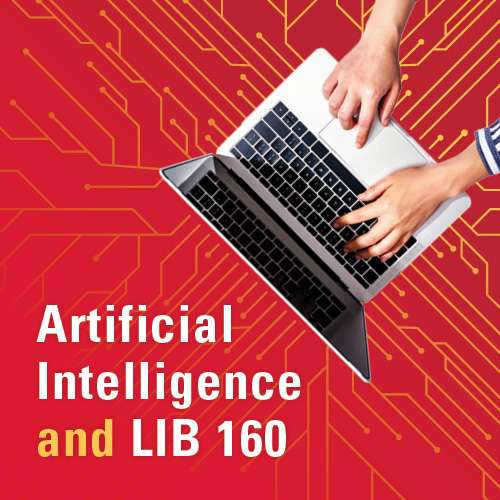
Artificial intelligence (AI) is a very advanced computer program designed to interact with humans and imitate or simulate human behavior, and this semester, it will be part of the coursework and discussion in Introduction to College-Level Research or Library 160.
Rano Marupova is the lead of the instruction services unit in the University Library. In her spare time, she likes to experiment with artificial intelligence (AI) tools like Chat GPT, Bard (Google’s version), and Adobe Firefly for image generation. She acknowledges that students will use AI technology in coursework because of the fast response time to create content.
“As educators, we must teach our students how to use information generated by these tools critically and ethically, and it naturally aligns with the major course learning objectives of our information literacy course,” Marupova said. “We will start introducing AI in our course within the context of evaluating information.”
Librarians and staff of the University Library have taught students about information discovery for 133 years through Library 160, one of the first courses of its kind in the country. It remains agile with content refreshed and modernized as needed, to embrace new processes, terms, and technologies – like we have now with AI.
In 2022, Library 160 earned Quality Matters (QM) Certification following a rigorous review process. The QM Certification Mark is the internationally recognized symbol of online and blended course design quality and represents the Iowa State commitment to creating learning environments that provide learners with a clear path to success.
The textbook for Introduction to College-Level Research is published Open Access and available free online from the Iowa State University Digital Press.
Contacts
Rano Marupova, 515-294-7129, ranomi@iastate.edu
M. Monica Gillen, 515-294-1442, mgillen@iastate.edu
As educators, we must teach our students how to use information generated by these tools critically and ethically, and it naturally aligns with the major course learning objectives of our information literacy course.
Rano Marupova, instruction services unit lead